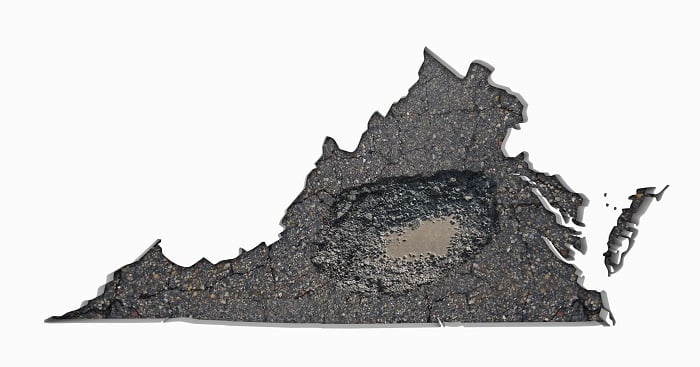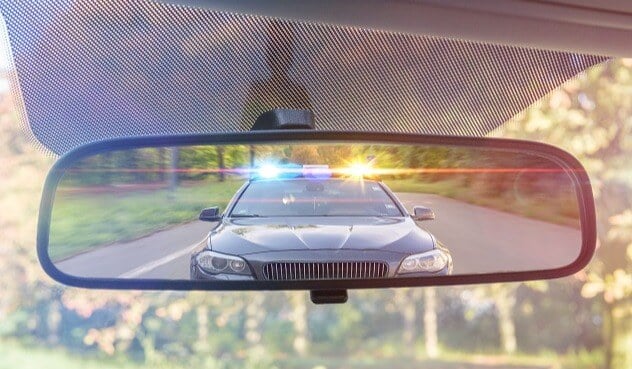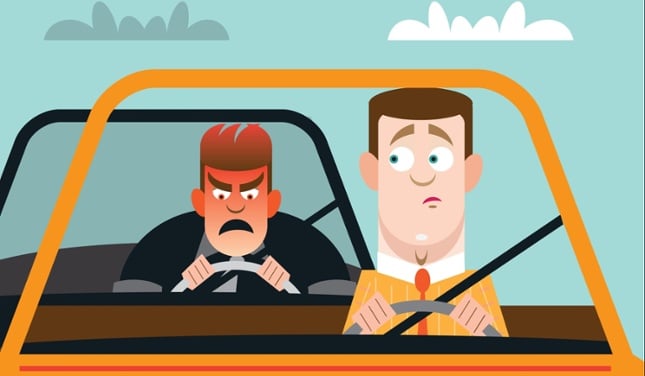
The traffic slows down and then finally lets up! You’re cruising on I-95 up the left lane at a pretty good clip. Until you approach another car going much slower, you flash your lights and honk your horn. This is the fast lane! Don’t they know they should stay to the right unless they are passing? Isn't that against the law? What the heck?! And then there’s that, ahem…gesture.
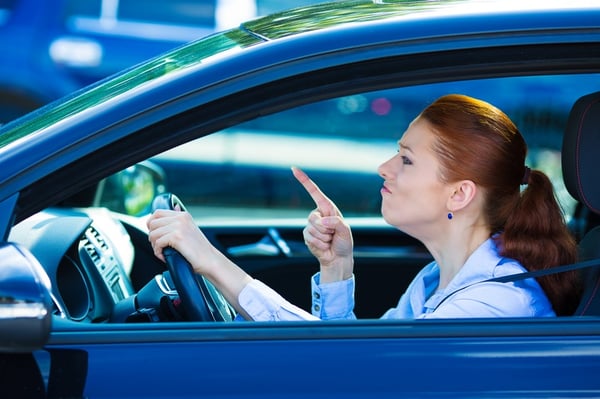
The left lane is for passing drivers
According to new AAA poll, 73% of Virginia drivers do not know using the left lane of a highway for anything other than passing is illegal. Whether you’re on Route I-64, I-81, I-95, or another Virginia interstate, Virginia's law and fine agree with you- kind of sort of.
The law prohibits people from driving below the speed limit in the left lane, or from being in the left lane if you are not passing another car or turning left.
Commonwealth law requires drivers to use the left lane only for passing. Once a driver completes the pass, the driver must then move back into the right lane.
The law is meant to keep traffic from backing up, but also to make roads safer, especially for emergency vehicles driving in the left lane. Virginia lawmakers are serious about enforcement to the tune of $100 for left-lane loafing. Also, trucks may not travel in the left-most lane of interstates with three or more lanes by direction when the speed limit is 65 mph or higher.
Here at NNINS, we see the benefits that come with the enforcement of drivers slowing down left lanes. There are obvious safety issues with speeding drivers weaving in and out of traffic to pass when the left lane is clogged. Chronic lane changing increases the risk of a crash and improper lane changes rank as one of the top causes of fatal crashes.
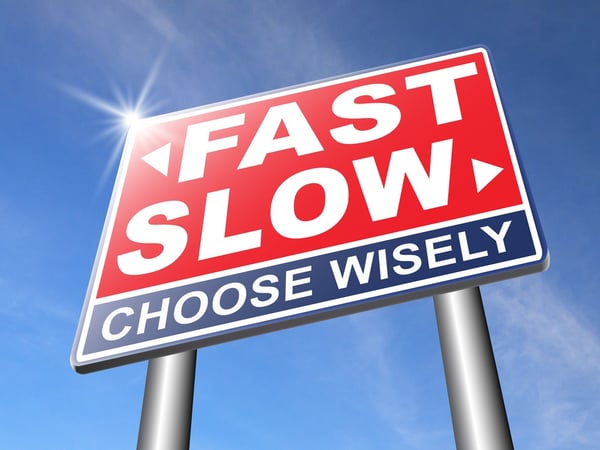
Speed and traffic fatalities in Virginia
The left lane, however, is not the "fast lane". But that fact does not jive with the growing number of traffic fatalities. Ending a 5-decade trend in declining traffic deaths, the nation had a 7.2 % increase from 2014, losing more than 35,000 people in crashes in 2015. (NHTSA) In 2017, there were 843 deaths on Virginia roads- that's up from 705 in 2016, according to the Virginia Department of Transportation. According to the DMV, 968 Virginians died in roadway crashes in 2021, which was the highest number of annual fatalities. In 2022, Virginia was one of six states with above-average at-fault accident rates.
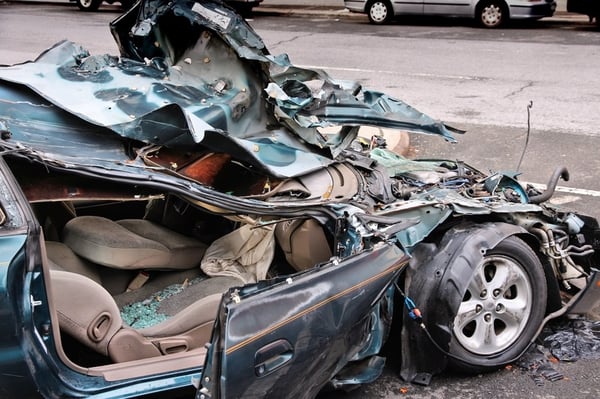
Contributing reasons for increases in speed today are partly related to a carryover of Covid driving habits. Driving speeds—which increased dramatically during the pandemic as drivers encountered near-empty roads—have not come down. There are also correlations between fatalities and impaired and distracted driving.
Left lane best practices
So here are three things to consider before you zip up the left lane: (If you’re getting more honked at from behind, we have a separate tailgaters blog article just for you!)
1. The left lane is not a license to speed.
VA law prohibits going over 80 mph or any speed 20+ over the speed limit. It's called reckless driving, a misdemeanor offense, which is the same level of offense as DUI. And remember: the Virginia speed limit is defined as the maximum legal speed that you may travel on the road where this sign is posted assuming weather conditions are favorable. During rain, snow, and ice, you may receive a ticket for over-driving the conditions even if you are driving at or less than the posted speed limit.
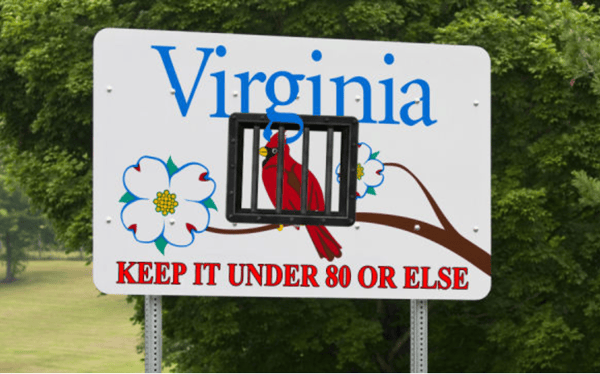
2. Let Virginia State Police do their job
Tail-gating or badgering another driver is dangerous, and it's also considered aggressive driving and can be criminal. Remember that there’s a range of interpretations on how to drive in the left lane due to the broad range of ways states handle it. And there are many out-of-staters driving through Virginia each summer. Be patient, avoid escalating any issue with another driver, and let officials penalize dangerously slow drivers.

3. Take it easy and enjoy the ride!
You’re probably not going to get there faster anyway. Studies show speeding, zipping around cars, and changing lanes frequently don’t get you to your destination any faster. Did you know driving 70 mph instead of 65 saves you 6½ minutes on a 100-mile trip at best? It also increases the chance of having an accident and decreases your gas mileage. That can translate to higher car insurance premiums. And it’s bound to make you feel more uptight and stressed out.
Virginia lawmakers are working towards making the Commonwealth’s roadways safe and sound. By keeping slower traffic to the right and obeying posted speed limits, all of us can join the effort. Now, put down that phone!
Learn more about car insurance in Virginia
Sources:
https://law.lis.virginia.gov/vacode/title46.2/chapter8/section46.2-804/
https://www.dmv.virginia.gov/safety/programs/speeding/faqs
THE NORTHERN NECK INSURANCE INTEGRITY PROMISE — We pledge to provide straight talk and good counsel from our NNINS Virginia insurance experts through our blog. While we hope you find this to be a helpful source of information, it does not replace the guidance of a licensed insurance professional, nor does it modify the terms of your Northern Neck Insurance policy in any way. All insurance products are governed by the terms in the applicable insurance policy.

